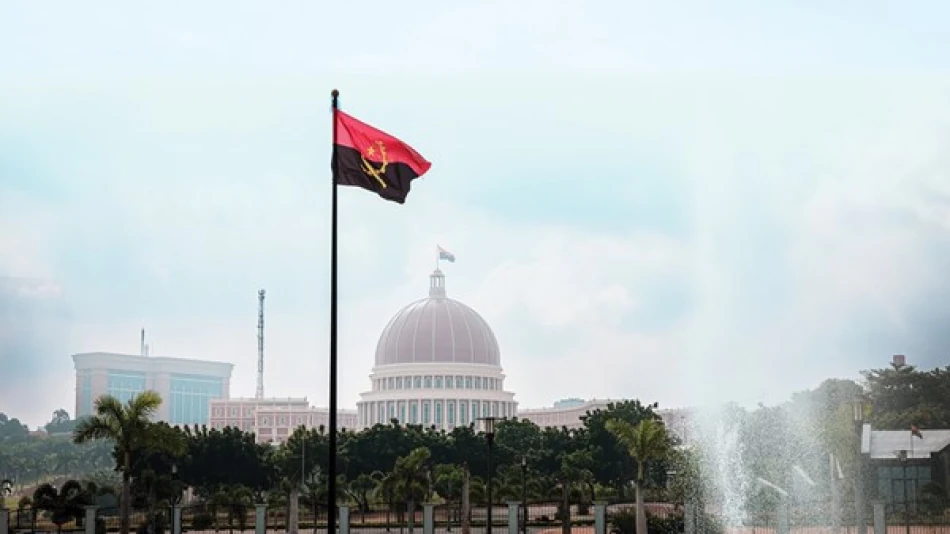
UAE and Angola Forge Powerful Strategic Partnership for Mutual Prosperity
UAE President's Historic Angola Visit Signals Strategic Pivot Toward Africa's Energy Powerhouses
President Sheikh Mohamed bin Zayed Al Nahyan's groundbreaking visit to Angola—the first by a UAE head of state since diplomatic relations began in 1997—marks a calculated shift in Emirati foreign policy toward Africa's emerging economic giants. This diplomatic milestone reflects the UAE's growing recognition of Angola as a strategic gateway to Central Africa's vast oil reserves and untapped investment opportunities, positioning both nations as key players in reshaping South-South cooperation.
Breaking Diplomatic Ground After 27 Years
The visit carries exceptional symbolic weight, representing the first state visit by an Emirati president to Angola since the countries established diplomatic ties nearly three decades ago. This timing is no coincidence—Angola has emerged as one of Africa's largest oil producers while simultaneously diversifying its economy away from hydrocarbon dependence, creating natural synergies with the UAE's own economic transformation journey.
Dr. Haitham Omran, a professor of political science and international law, emphasized that the visit demonstrates the UAE's commitment to building "strategic partnerships based on mutual interests and shared vision toward regional and global challenges." This approach mirrors successful UAE diplomatic initiatives in Southeast Asia and Latin America, where economic pragmatism has yielded substantial returns.
Energy Cooperation at the Center
Angola's position as a major oil producer creates immediate opportunities for UAE energy companies and sovereign wealth funds. The country's push toward renewable energy diversification aligns perfectly with the UAE's expertise in clean technology and sustainable development, particularly following the success of initiatives like Masdar City and the UAE's commitment to net-zero emissions by 2050.
Senegalese researcher Terno Bashir noted that the visit reflects "an Emirati vision aimed at diversifying foreign investments and expanding economic partnerships." This strategy has proven successful in other African markets, where UAE investments have grown substantially over the past decade.
Regional Security and Stability Framework
Beyond economic considerations, both nations share common ground on regional security challenges. Angola's role in mediating conflicts within the Southern African Development Community (SADC) complements the UAE's growing influence as a stability broker in the Middle East and Horn of Africa.
The partnership addresses critical security concerns including counterterrorism cooperation and sustainable development initiatives—areas where the UAE has demonstrated significant expertise through its successful interventions in Somalia and partnerships across the Sahel region.
Market Implications and Investment Opportunities
For investors and multinational corporations, this diplomatic breakthrough signals substantial opportunities in sectors ranging from infrastructure development to agricultural modernization. Angola's vast arable land and water resources, combined with UAE capital and technology transfer, could transform regional food security dynamics.
Dr. Heba Al-Bashbishi, an expert on African affairs, highlighted that UAE initiatives focus on "preventive policies that target drying up the sources of crises, instead of waiting for them to explode." This approach has proven particularly effective in markets like Rwanda and Ghana, where UAE investments have contributed to sustained economic growth.
Comparative Context: UAE's African Strategy
The UAE's Angola engagement follows a broader pattern of strategic partnerships across Africa, with the Emirates now maintaining diplomatic relations with approximately 50 African nations. This network rivals traditional powers like France and the UK in terms of scope, while offering more flexible partnership terms without colonial baggage.
Unlike China's debt-heavy Belt and Road Initiative or Western aid models with governance conditions, the UAE approach emphasizes mutual benefit and knowledge transfer. This model has yielded positive results in countries like Ethiopia and Kenya, where UAE investments have supported both infrastructure development and private sector growth.
Long-term Strategic Vision
International relations researcher Mohamed Khalfan Al-Sowaifi emphasized that UAE-African relations have evolved "from traditional friendship relations to strategic relationships with multiple dimensions, led by the economic dimension." This transformation aligns with the UAE's Vision 2071, which positions international partnerships as direct contributors to sustainable economic growth.
The Angola visit represents more than bilateral diplomacy—it signals the UAE's commitment to becoming a primary bridge between the Gulf region and Africa's emerging economies. As global supply chains diversify and new trade corridors emerge, this positioning could prove strategically invaluable for both nations' long-term economic prospects.
Most Viewed News

 Layla Al Mansoori
Layla Al Mansoori






